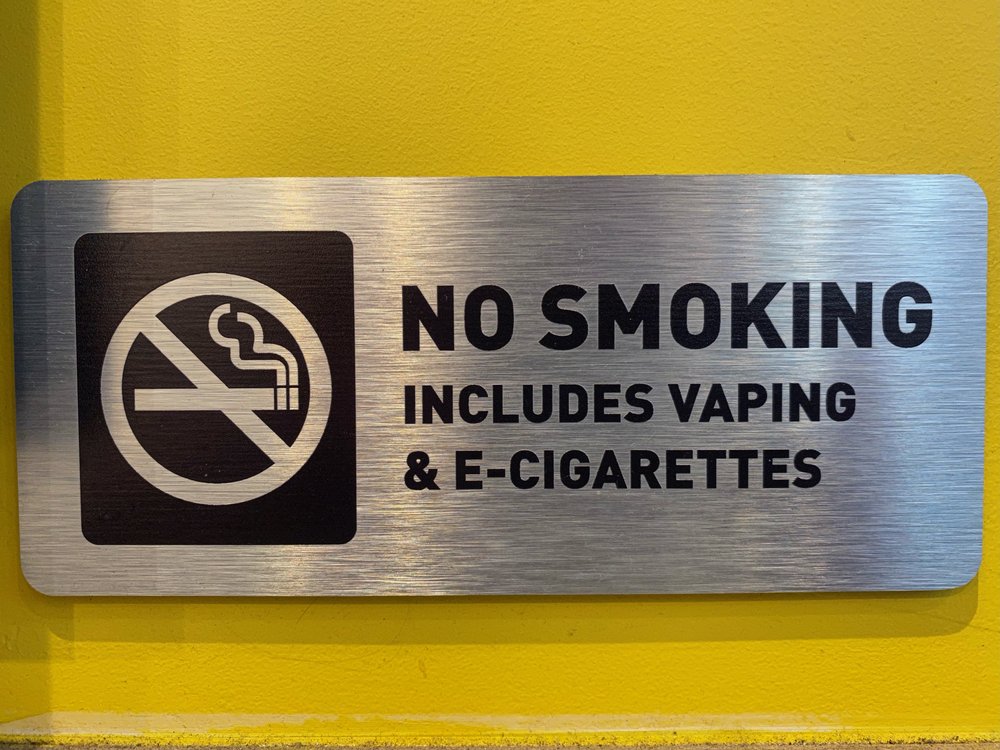Smoking-related cancers are declining in NYC, but vaping and e-cigs raise concerns
Sept. 29, 2023, 6:01 a.m.
Fewer New Yorkers are also using tobacco overall, but popularity is increasing among teens.

Fewer New Yorkers are being diagnosed with cancers linked to tobacco than in years past, according to a new report by the New York State Department of Health.
Lung cancer diagnoses decreased by more than a quarter statewide between 2006 and 2020. In New York City, the lung cancer rate plummeted by nearly a third during the same time period. Throat cancers – of the larynx and esophagus — were also diagnosed less frequently in 2020.
In a mid-September press release announcing the findings, department officials chalked the changes up to tobacco control policies implemented over the last few decades — including banning tobacco use indoors, levying taxes on tobacco products and starting a free helpline for New Yorkers looking to quit smoking, which received more than 80,500 calls in 2019 alone. They also highlighted newer rules, like a $1-per-pack cigarette tax that went into effect earlier this month.
Tabassum Insaf, from the state health department’s Bureau of Cancer Epidemiology, said that she expects cancer rates to decrease even further as New York continues to crack down on tobacco products.
“When you see a consistent decline, it really drives home the point that this is a true decrease and this should continue if we continue on the same path,” she said.
Tobacco use has been linked to a host of cancers in the body. But research shows that lung cancer, oral cancer, esophageal cancer and laryngeal cancer are most closely connected. Smoking-related cancers killed close to 19,000 New Yorkers each year on average from 2016 to 2020, according to health department data. Lung cancer is especially common and deadly.
For the new report, researchers at the state health department consulted the NYS Cancer Registry, a comprehensive database of all cancer diagnoses and deaths across the state. They also gauged smoking rates using a pre-existing annual phone survey.
Of the four cancers most closely related to smoking, the researchers found that three declined substantially during the 15-year study period. Oral cancer rates, meanwhile, increased slightly across the state, driven by an uptick in cases outside NYC. New York City accounted for the steepest declines, while declines in other parts of the state where smoking is more common were more modest.
In recent years, the tobacco-linked cancers have been most common among non-Latino white New Yorkers, the data shows. White survey respondents also reported smoking more than New Yorkers of other races and ethnicities. Men were also more likely than women to receive diagnoses of lung, oral, laryngeal or esophageal cancer.
The survey data suggests that many types of tobacco use are on the decline. About 12% of adults smoked statewide in 2020, down from close to 20% in 2006. Smoking rates vary dramatically by county, though — from just 9% in Queens to nearly a quarter in parts of western New York.
One form of tobacco consumption climbed dramatically during the study period: e-cigarettes used by high schoolers. Nearly a quarter of New York high teens surveyed in 2018 reported using a vape in the last month. That number had declined slightly by 2020, but about a fifth of high school-aged New Yorkers still reported that they used e-cigarettes.
Vaporized tobacco comes with its own set of health risks, many of which aren’t yet known because the products are so new, said Mary Beth Terry, an epidemiology professor at Columbia University’s Mailman School of Public Health who wasn’t involved with the research.
“These vaping products, in addition to nicotine, have many heavy metals which are also carcinogens,” she said. “Even though there haven’t been studies [yet], those studies will come.”
Insaf said it will be years before the consequences of vaping and other tobacco consumption — and the benefits of current tobacco control policies — show up in the data.
The current findings represent “the effects of tobacco consumption that happened years earlier,” she said. “The data that is going to provide the strongest evidence for [today’s] policy changes is going to come a few years down the line.”
Still, Terry said she felt “optimistic” about the improvements.
“This report shows how important policies like the cigarette tax can be,” she said.
If you want to quit smoking and would like some free help, you can call 1-866-NY-QUITS (1-866-697-8487), text 716-309-4688 or visit nysmokefree.com. You can also find local NYC programs using this map from the city’s health department.
They pick your blueberries and peppers. But NJ doesn’t protect farm workers from rising heat. NYC Council plans to fight loud streets with 'noise cameras'